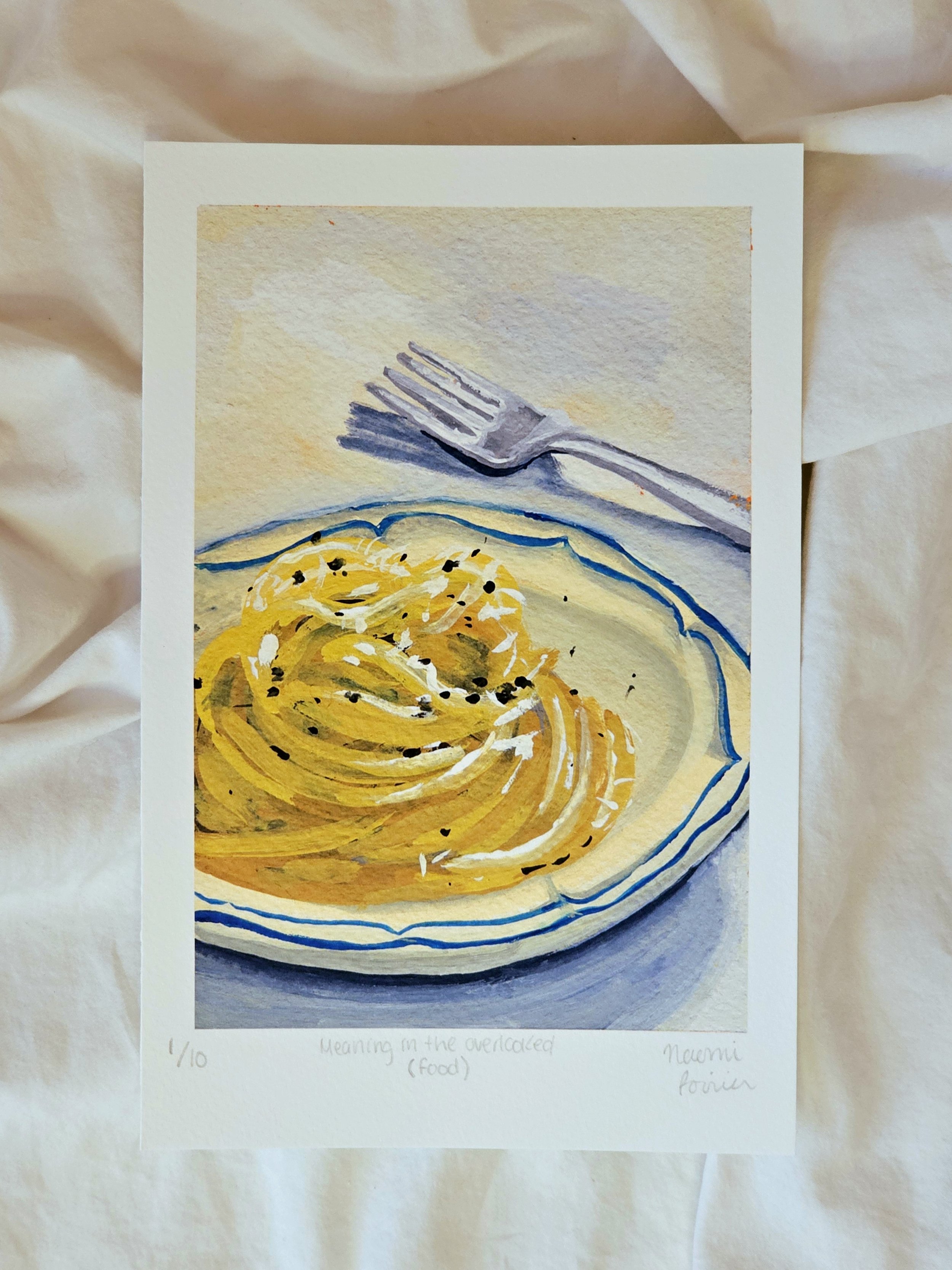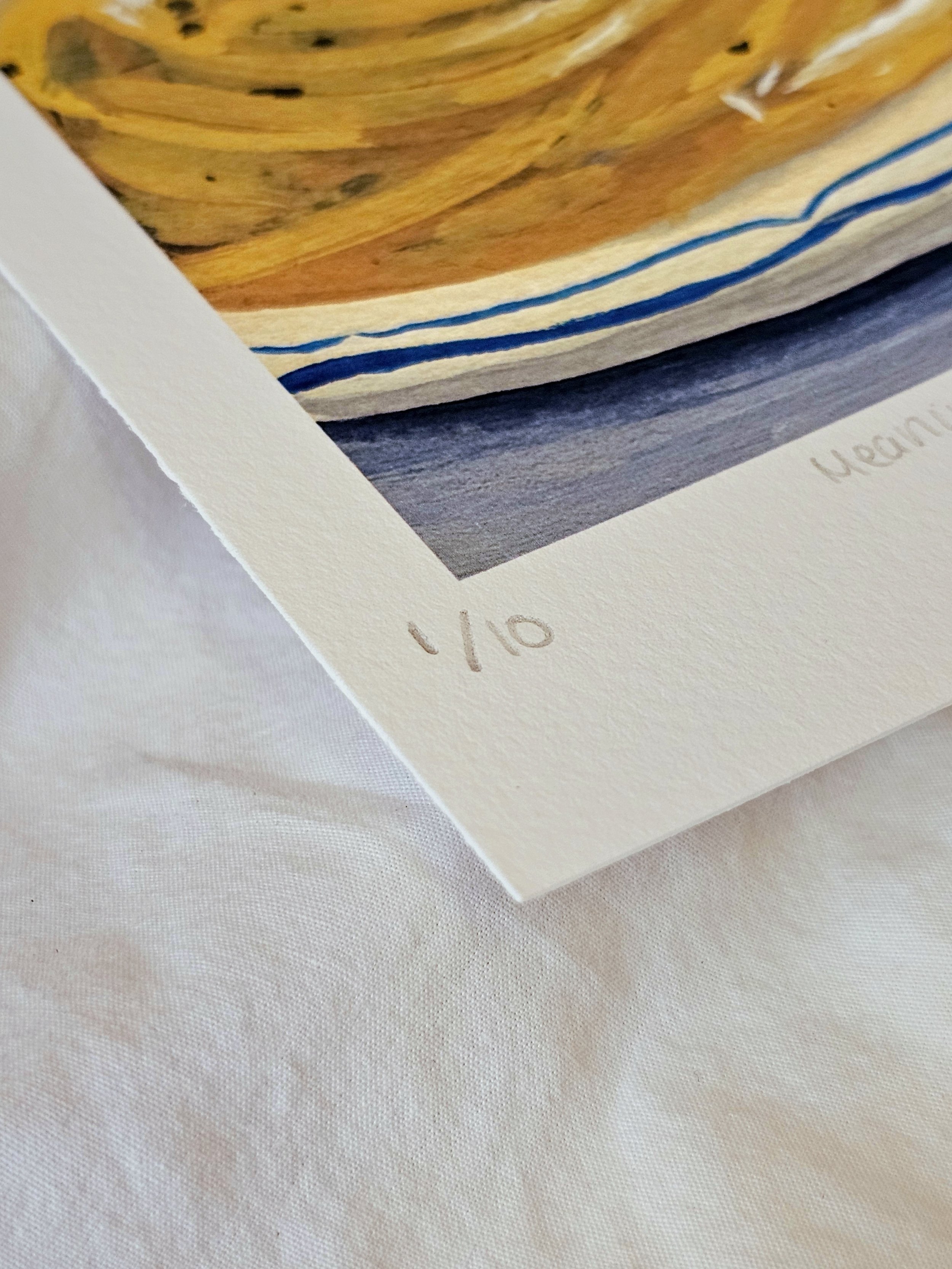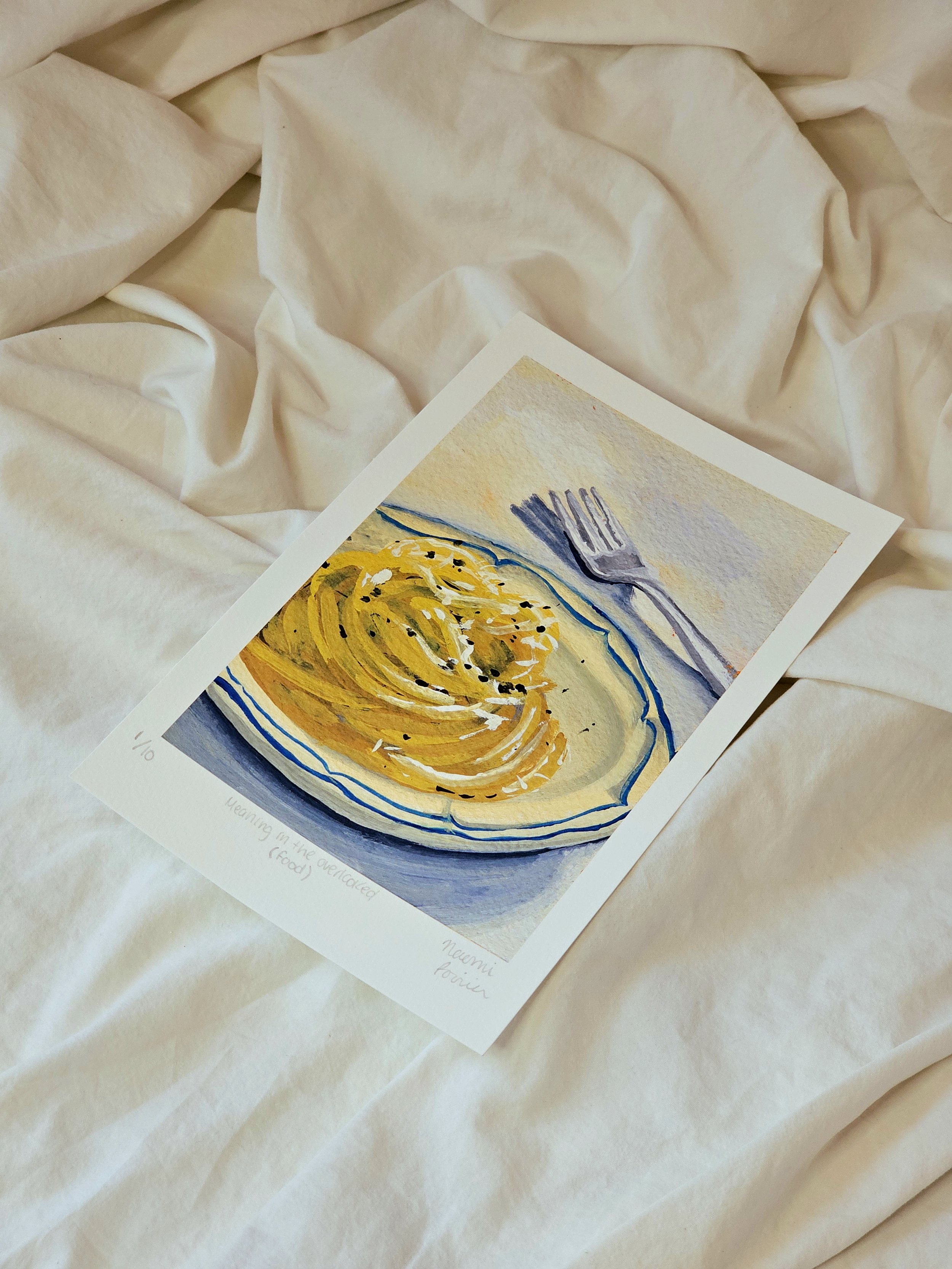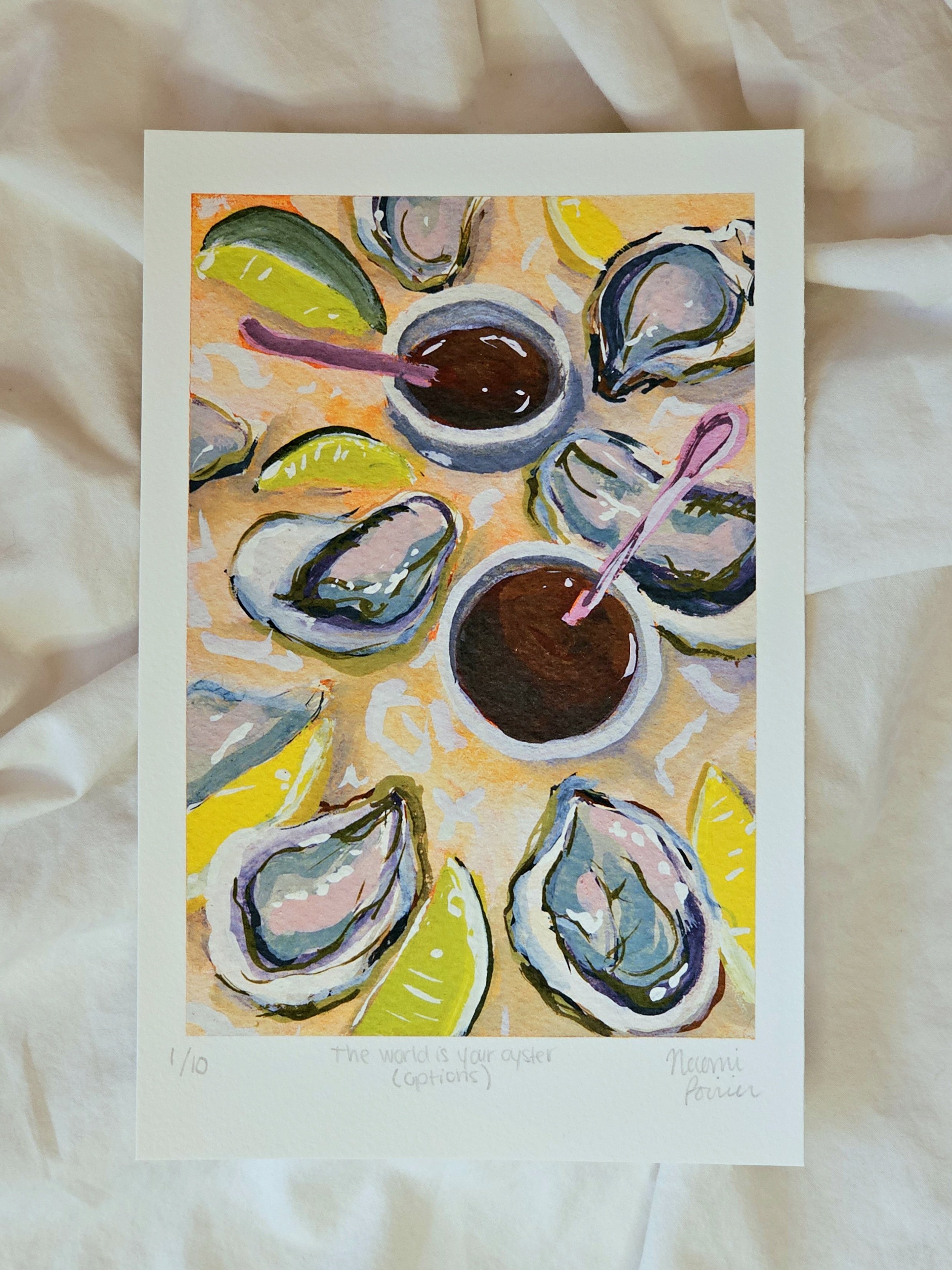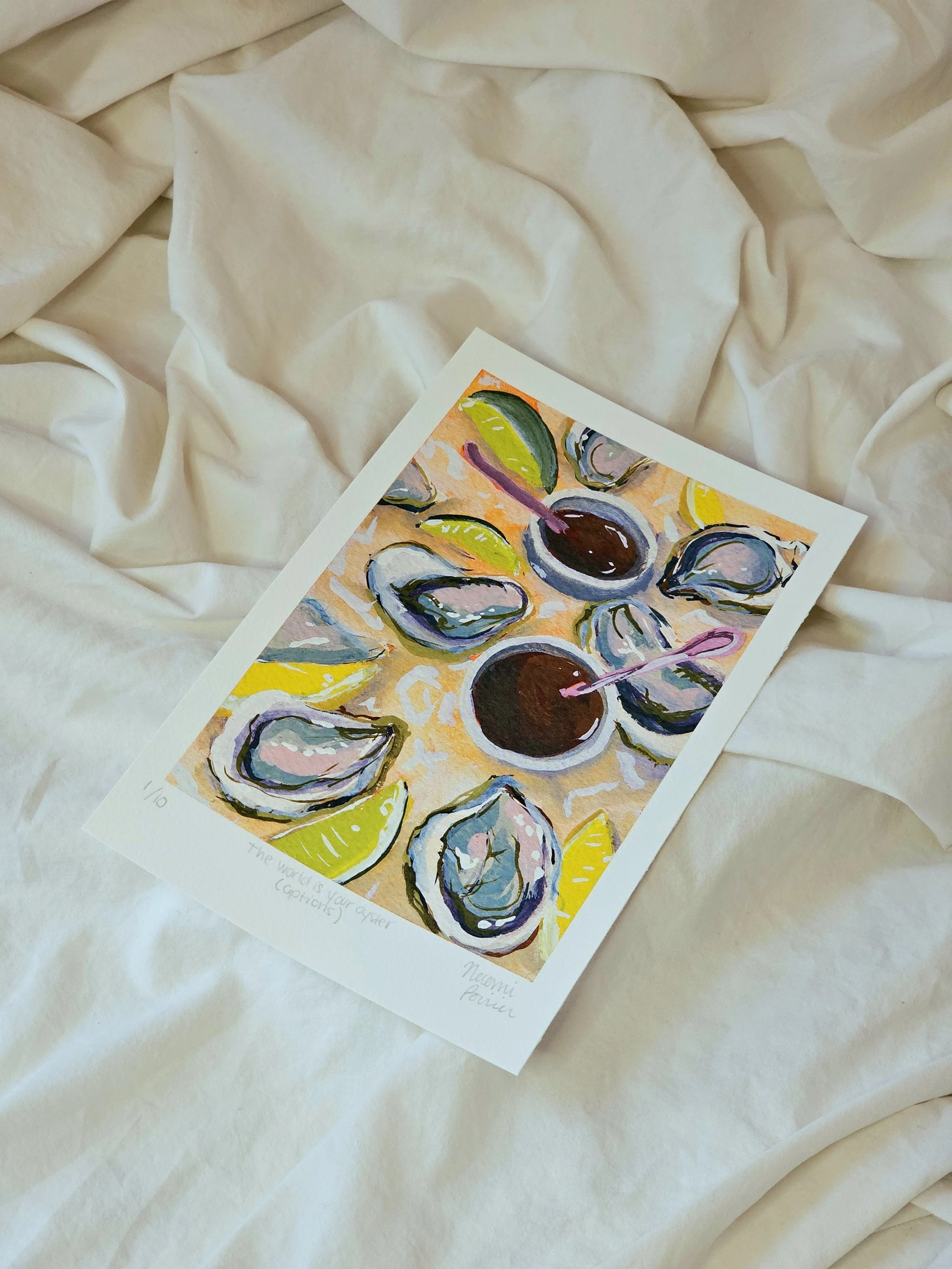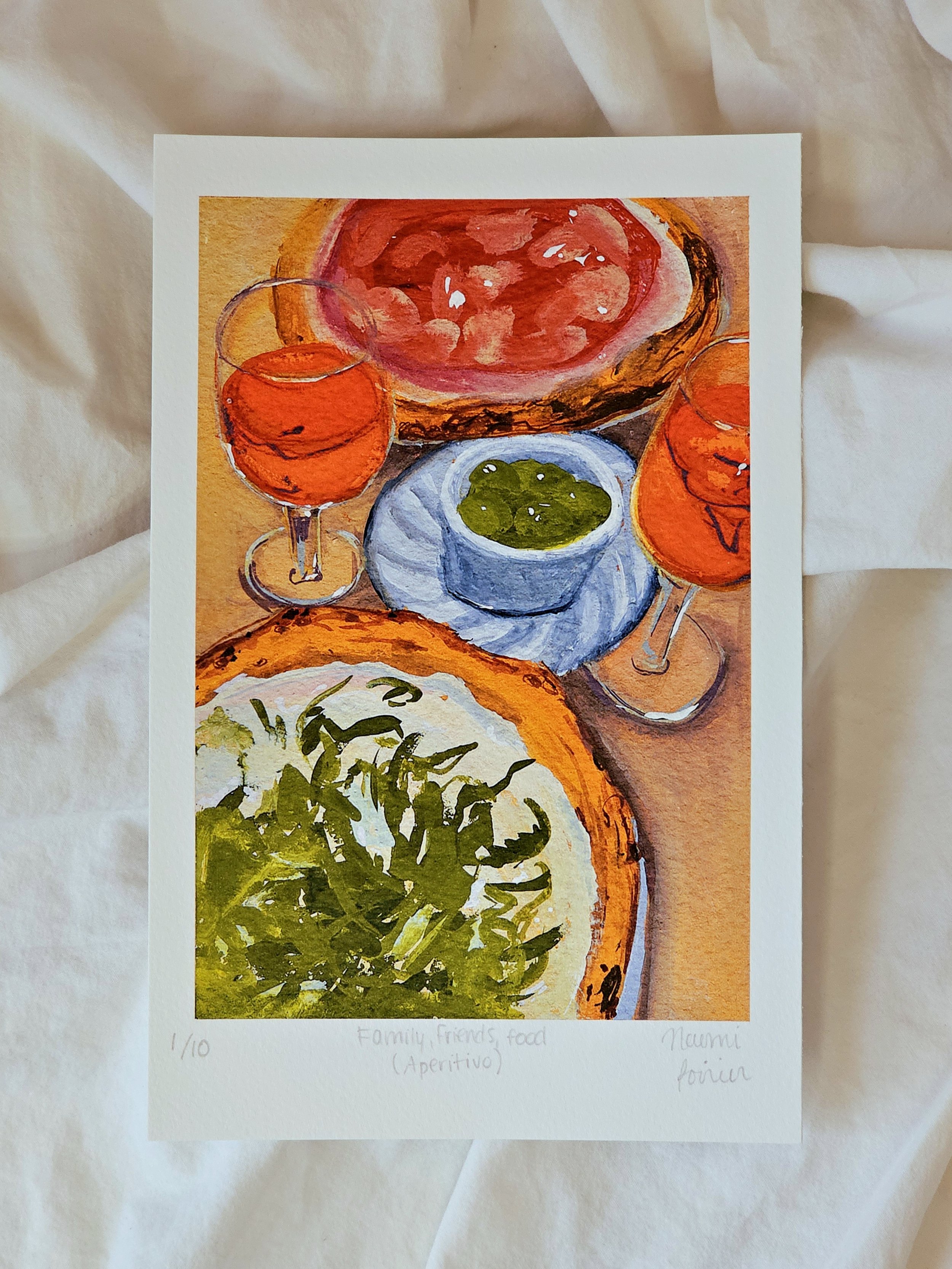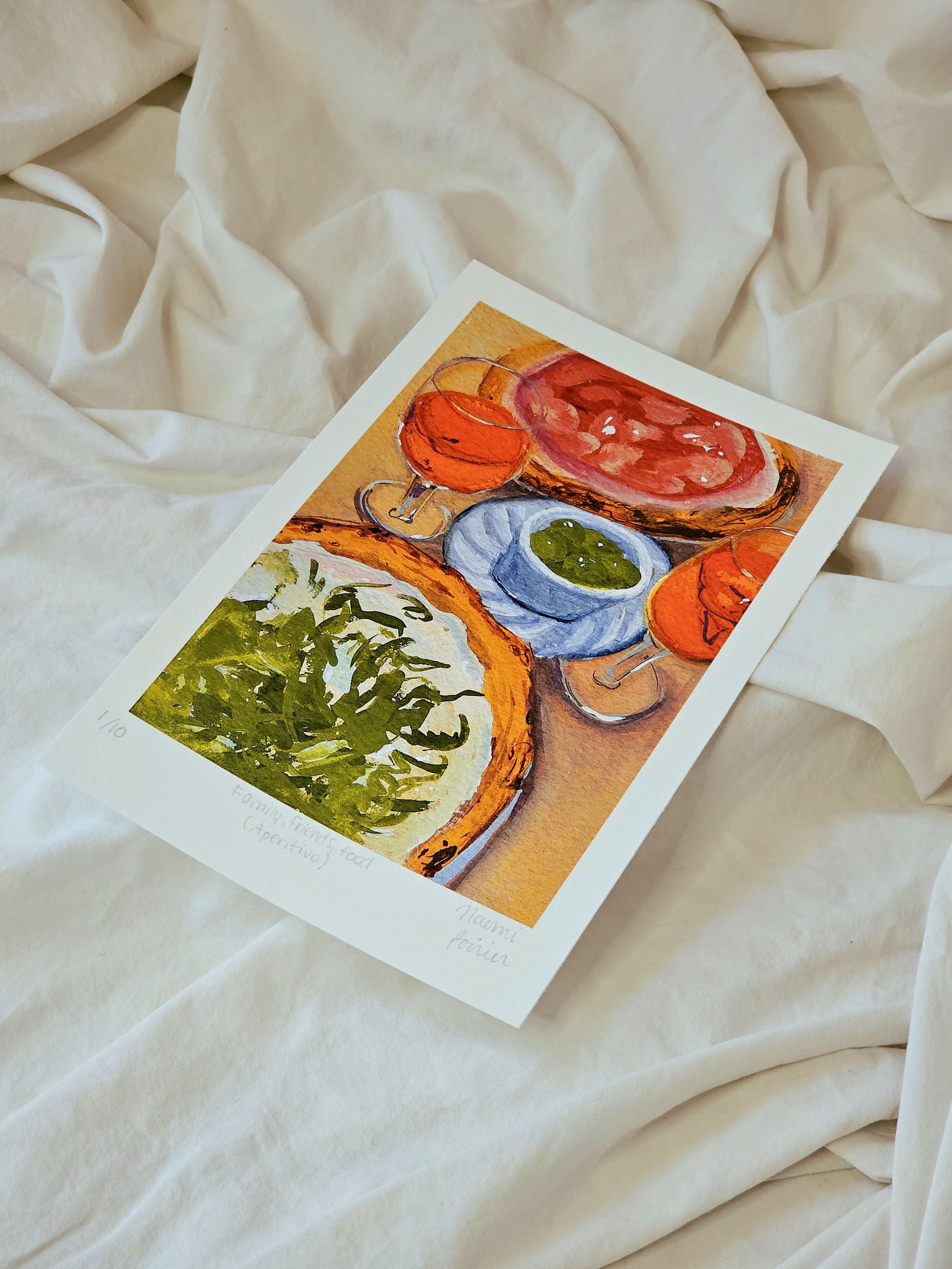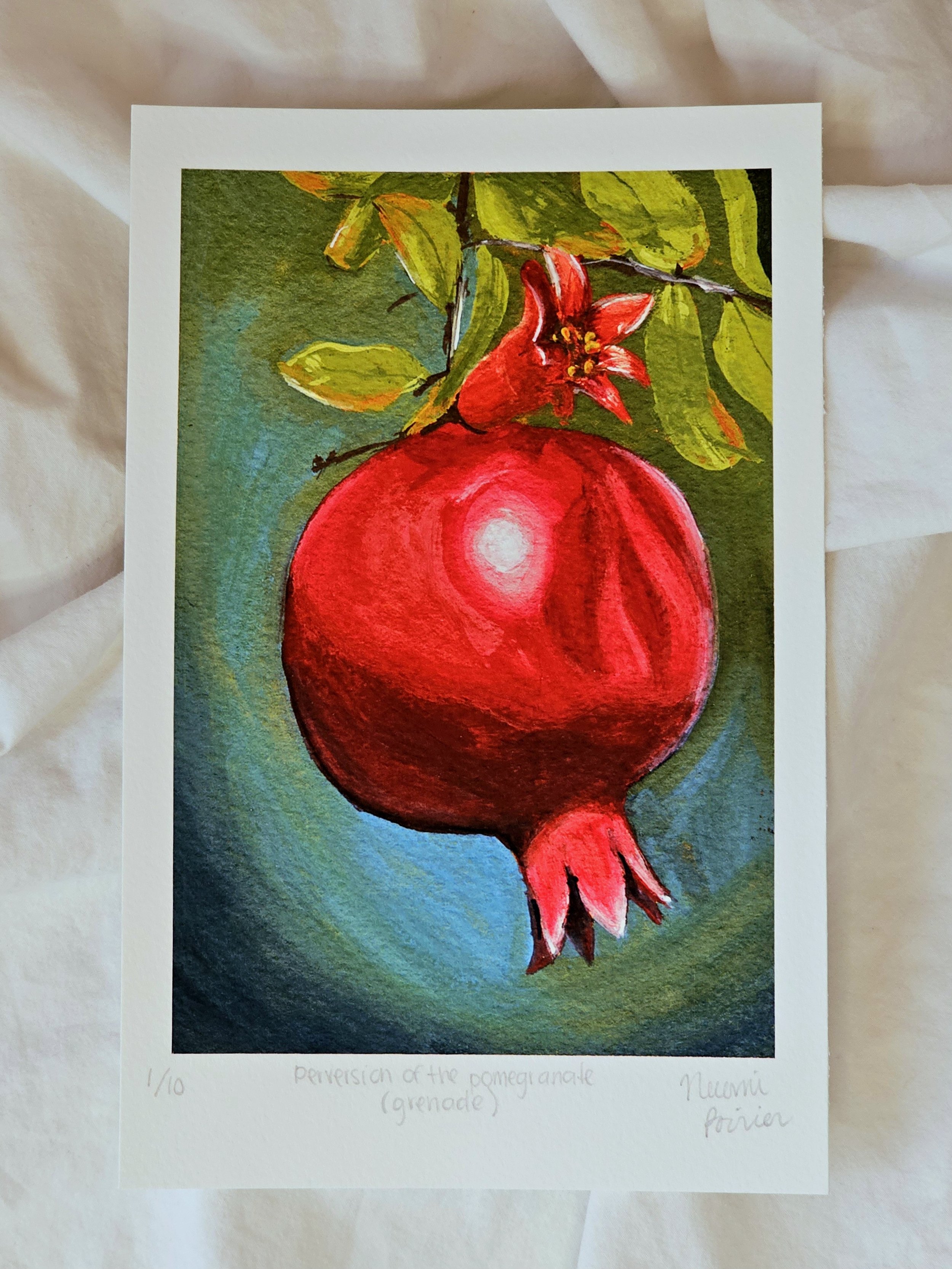Meaning in the overlooked (Food) - Print
Copy of original painting - LIMITED EDITION OF 10
100% acid-free cotton fiber matte paper. Printed with archival quality ink.
Name of the painting is written with pencil in the center and signed on the bottom right.
Actual colors may differ a little bit from the pictures.
Dimensions : 5.5 × 8.5 in (including white borders)
*Please allow up to 10 business days for me to ship your order
Copy of original painting - LIMITED EDITION OF 10
100% acid-free cotton fiber matte paper. Printed with archival quality ink.
Name of the painting is written with pencil in the center and signed on the bottom right.
Actual colors may differ a little bit from the pictures.
Dimensions : 5.5 × 8.5 in (including white borders)
*Please allow up to 10 business days for me to ship your order
Copy of original painting - LIMITED EDITION OF 10
100% acid-free cotton fiber matte paper. Printed with archival quality ink.
Name of the painting is written with pencil in the center and signed on the bottom right.
Actual colors may differ a little bit from the pictures.
Dimensions : 5.5 × 8.5 in (including white borders)
*Please allow up to 10 business days for me to ship your order
About that painting…
Food is fundamental to our survival, yet in the modern world, it is often taken for granted. Access to it has become abnormally easy, especially in the Western world, to the point where we no longer need to cultivate or cook it ourselves. Eating has drifted from the center of our existence. Instead, it is just another routine, a task to be completed without much thought or care.
This disconnection from what we eat, and where it comes from, is troubling. It should not feel normal to be so removed from the sources of our nourishment. The same applies to the animals we consume. If we had to personally k1ll the animals we eat, it’s likely many would rethink their dietary choices. Yet, the modern food system shields us from that reality. Meat arrives neatly packaged in plastic, sanitized of its origins. It’s convenient, but at what cost? We have become ignorant of the processes that create the food on our plates.
More concerning is our dependency on a food system we barely understand. Convenience has been elevated above all else, even our health. Heavily processed foods, engineered for efficiency and long shelf lives, have become the norm, despite overwhelming evidence of their harm. This system prioritizes ease over quality, speed over sustainability, and uniformity over care.
What we eat, and most importantly how it's produced, should matter. Reconnecting with what nourishes us is not just about health or ethics—it’s about finding meaning in something we have overlooked for far too long.

